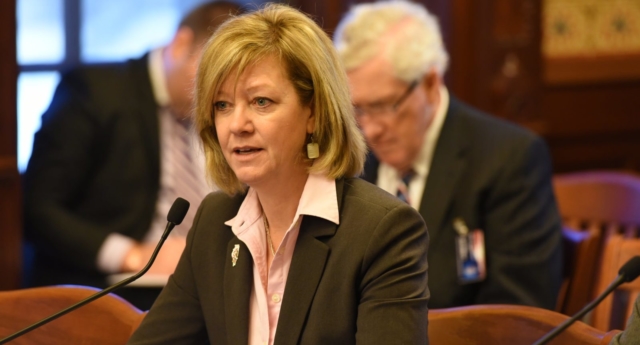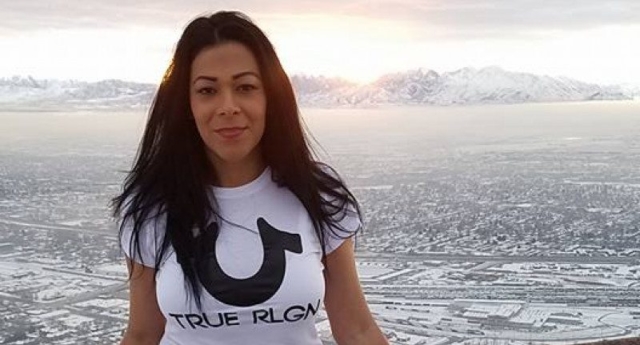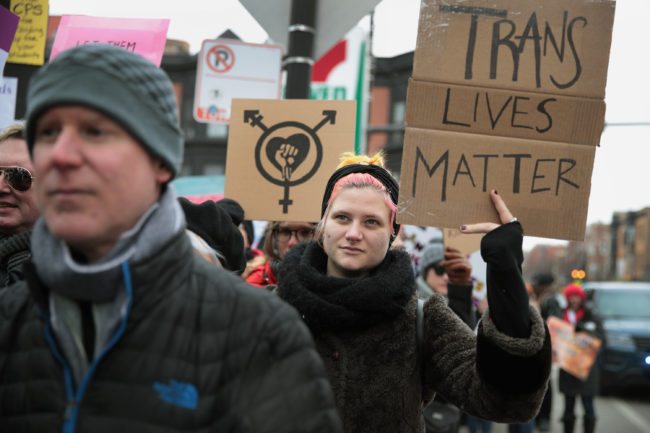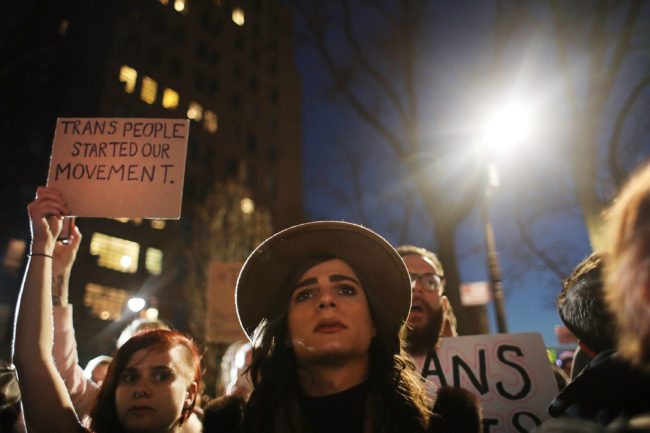The global research firm IPSOS released the results of a 23 country survey, including the US, on attitudes toward transgender people. The data was collected online between October 24th and November 7th, 2017 and included the following countries: Argentina, Australia, Belgium, Brazil, Canada, Chile, China, Ecuador, France, Great Britain, Germany, Hungary, India, Italy, Japan, Malaysia, Mexico, Peru, Poland, Russia, Serbia, South Africa, South Korea, Spain, Sweden, Turkey, and the United States of America.
For the purposes of this summary write-up, however, Ipsos has chosen to focus on findings from the 16 countries where internet penetration is sufficiently high to feel confident that the data is truly nationally representative (and it is weighted as such therein): Argentina, Australia, Belgium, Canada, France, Germany, Great Britain, Hungary, Italy, Japan, Poland, Serbia, South Korea, Spain, Sweden, and the United States. Full methodological details can be found at the end of this document.
Majority Want their Country to Do More to Protect and Support Transgender People
A strong majority of people around the world would like their country to do more to support and protect transgender people (60%), with those in Spain (70%) and Argentina (67%) most likely to agree. Poland (39%), Hungary, and Japan (both 41%) are least likely to agree. A slim majority of respondents in the United States (51%) and France (52%) would like to see their country do more to protect and support transgender individuals. People around the world are more likely to say they believe their government needs to protect transgender people from discrimination (70%), with a majority of every country in the nationally representative markets agreeing (Argentina (84%) is most likely to agree, Poland (51%) is least likely to agree).
Use of Correct Pronouns in English-Speaking Countries
In order to better understand the extent to which global citizens are aware of the correct pronoun usages for transgender people, Ipsos developed two questions to ask about this specific issue. The questions were only administered in the study countries where English is the primary language (Australia, Canada, Great Britain, and the United States) given the language’s gender binary, although we hope to develop similar custom questions language-by-language in the future.
In these countries, approximately two in five report referring to transgender men as ‘he’ and transgender women as ‘she’, rather than using the pronoun used at their birth. Approximately one in five would use the neutral pronoun of ‘they’. Americans are most likely to report that they would use the pronoun of the transgender person’s birth, with 22% reporting they would refer to a transgender woman as ‘he’ and 21% reporting referring to a transgender man as ‘she’. Australia (13% and 14%, respectively), Canada (14% for each), and Great Britain (12% and 13%, respectively) were less likely to report using the pronoun of a transgender person’s birth.
Countries Around the World Believe They Are Becoming More Tolerant of Transgender People
Six in ten people interviewed around the world (59%) believe that their country is becoming more tolerant of transgender people. This perception is strongest in Argentina (78%), Canada (78%), and Great Britain (75%). People in Sweden (73%), Australia (71%), and the United States (71%) also believe their countries are becoming more tolerant of transgender people. People in Hungary (31%), Poland (41%), and Japan (43%) are least likely to report that their country is becoming more tolerant of transgender people. In addition to a growing tolerance, a majority of people (60%) in these countries believe that transgender people are brave. People in Spain (74%), Argentina (70%), and Great Britain (69%) are most likely to agree with the sentiment that transgender people are brave, while those in Japan (38%) and Hungary (48%) are least likely to agree with this statement. A majority of people in the United States also believe that transgender people are brave (57%).
Most Believe Transgender People Are “A Natural Occurrence,” But Many Still Believe It Is A Mental Illness or Sin
Given the range of (mis)perceptions that exist about transgender people, Ipsos and BuzzFeed, in discussion with the Williams Institute, developed a series of questions in 2016 designed to better understand how people perceive and understand the concept and emergence of transgender individuals.
A majority of people in countries surveyed (52%) believe that transgender people are a natural occurrence. This belief is most commonly held in Spain (64%) and Germany (60%). People in Hungary (44%), Italy (45%), and Japan (48%) are the least likely to believe that transgender people are a natural occurrence. Although people in Italy and Hungary agree at similar rates that transgender people are a natural occurrence, just 11% of people in Italy believe transgender people have a form of mental illness, compared to 43% in Hungary. People in Italy (11%), Spain (9%), Argentina (13%), and France (13%) are least likely to believe that transgender people have a form of mental illness. This compares to two in five people in Serbia (44%), Hungary (43%), and Poland (41%). Among western countries, the United States is most likely to believe that transgender people have a mental illness (32%) and the most likely out of all countries surveyed to believe that transgendered people are committing a sin (32%). Americans are the most likely to say that society has gone too far in allowing people to dress and live as one sex even though they were born another (36%), while people in Japan are least likely to agree with this sentiment (9%).
Research Considerations and Proximity to Transgender People
It must be acknowledged here that there are myriad challenges to undertaking research on this potentially sensitive and low-information topic. Most pressing was the challenge of the word “transgender” itself, which is fairly widely used in English (alongside other, older, and occasionally incorrect terms like transsexual, intersex, and hermaphrodite) – but does not have a perfect translation in all languages. Indeed, words that mean transgender in other languages can have overtly pejorative overtones, or can refer to a specific gender, e.g. Hijra in India which refers almost universally to transgender females born with male genitalia.
To ensure as much clarity as possible, Ipsos (in discussion with The Williams Institute and BuzzFeed News, in 2016) developed questions using the phrase “people who dress and live as one sex even though they were born another” which is used throughout the survey instead of the word “transgender” or any translation thereof. This is not the only challenge associated with this kind of survey research, however, and attempting to understand public awareness of and proximity to transgender individuals is equally challenging.
For example, only tiny percentages in each country (0% to 2%, with two exceptions) have individuals who self-identify as transgender (or say that they themselves “dress and live as one sex even though they were born another”) – but even this range alone is very wide when considering such a low-incidence population. Furthermore, the figure reported is higher in the United States (5%) and in India (4%), both of which seem far higher than reality. Indeed, the incidence of individuals identifying as transgender themselves in many countries, or as personally close to a transgender individual seem higher than we might expect given existing incidence data. However, there are a range of possible explanations for this finding, detailed below:
- Simple error ranges associated with survey work, typically referred to as “Margins of Error,” “Credibility Intervals,” or “Confidence Intervals”. For online surveys with the sample sizes included here, the associated error range is between 3 and 5 points.
- Confusion over the phrase “dress and live as one sex even though they were born another” in the place of “transgender” – when “transgender” is a common term used in the United States, and other terms (Hijra, Intersex, Aravani, etc.) are far more common elsewhere. Alternately, people in the US and India may – for reasons we don’t yet understand – agree that they “dress and live as one sex even though they were born anther” but not be transgender individuals in the way the research intended the word to be interpreted. That is to say, the language we needed to use to avoid cross-cultural confusion in translation may have had a different inadvertent effect on how individuals in some countries understood the question.
- Misreading of or speeding through the survey question, which is a more common occurrence – for a plethora or complex reasons centering around volume of online panel work – in the United States.
For more information and the full methodological details of the study go here.




